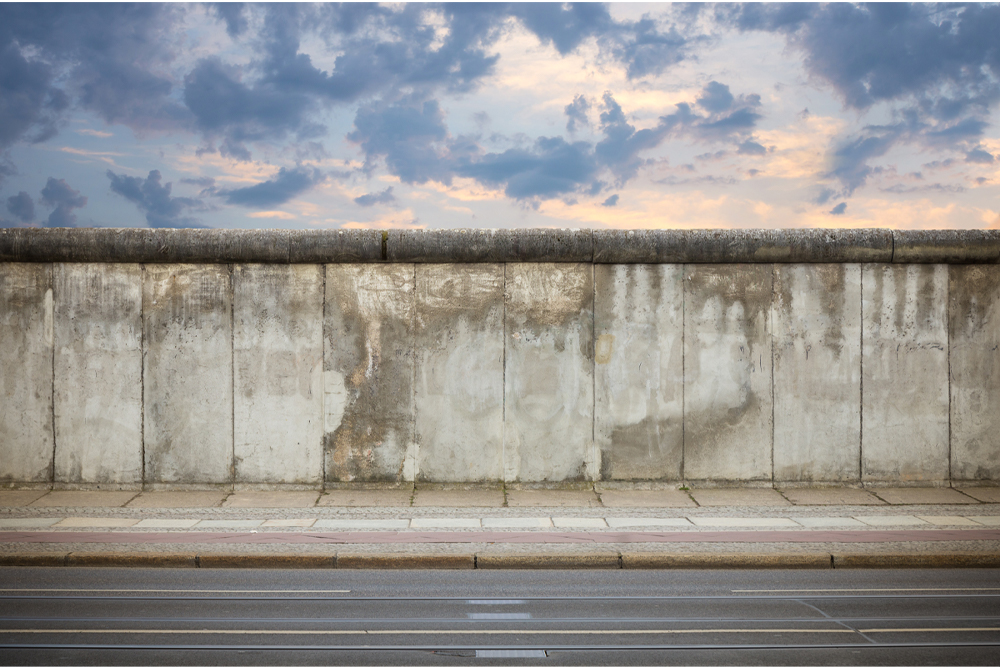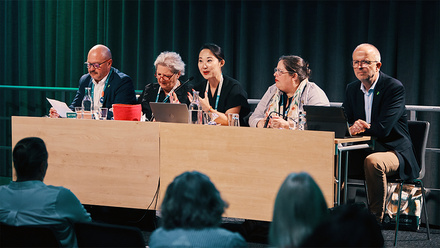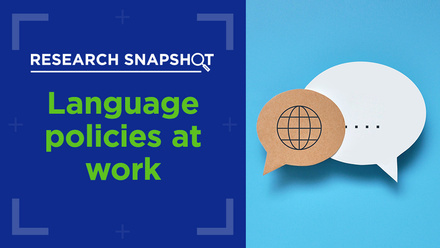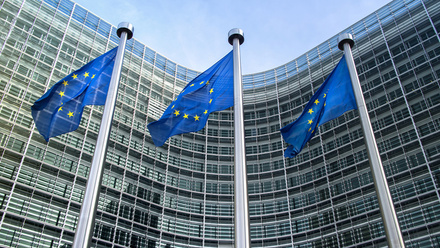30 years later: lessons learned from the Berlin Wall

Thirty years ago marked an abrupt end to one of the most powerful symbols of division and inequality in the twentieth-century zeitgeist: the Berlin Wall. The intervening years have seen the field of internationalisation rise in prominence, yet at the same time many of the nationalist and anti-intellectual tendencies that gave birth to the Wall in the first place are re-emergent in the world. What have we learned since the fall of the Berlin Wall, and what do those lessons teach us about the road ahead?
Not Athens nor Rome, Delhi, Kyoto or Buenos Aires. Berlin is the city in which I always feel the greatest sense of history, perhaps because it interlinks so meaningfully with my own story as an internationalist. It was the first place I lived away from home, and at a pivotal moment in my life, as an 18-year-old taking a gap year before university. This was 1975, the year after the Bundesrepublik established its Ständige Vertretung (permanent representation) in East Berlin and exactly the halfway point in the existence of the Wall, although of course we didn’t know it at the time. Practising my German while working as au pair for a diplomatic family in East Berlin sounded very glamorous to me, although it was a little worrying for my parents.
Having diplomatic status was both a blessing and a curse. I and others in the Western diplomatic community could travel freely across the divide created by the Wall, but it was difficult to hold conversations with East Germans or really get to know them, as we were constantly under observation and there were microphones in the house walls. Talking about the West could have resulted in trouble for the Western diplomats, but for East Berliners the consequences would have been much worse. Any sense of growing friendships might have been perceived by our ‘minders’ as a precursor to smuggling materials, or even people, across the territorial boundary. As someone who thrives on engaging with others, this was a frustrating side of my life there.
History repeats
I saw first-hand how the Wall divided this wonderful city and how propaganda, combined with travel restrictions, affected perceptions of life ‘on the other side’ – on both sides of the Wall. Being fed a diet of untruths will eventually result in assumptions being made which have no basis in reality, unless experience tells you otherwise. Unsurprisingly, this causes me to view present-day global issues from a certain vantage point. Lack of respect for experts, facts and the truth; ideological dogma as opposed to critical enquiry; cries of ‘fake news’ – all of these can easily arise through lack of knowledge or understanding and can have devastating and corrosive effects.
It is often said that we should learn from history, but in most cases we don’t. Many countries around the world are currently affected by rising populism and nationalism, including Germany itself. In the UK, it is frightening to see striking parallels in some of the rhetoric used by ardent Brexiteers, with language which helped propel Europe into WWII. Around the world we see hate speech and intolerance of ‘otherness’ being whipped up for political ends, and of course in the USA a new wall is being built.
The role of internationalisation
But what does this mean for us in international education? First of all, it means looking at ourselves, our own openness and willingness to engage. We may be good at setting up partnerships with universities in other countries, but how willing are we to learn from different academic traditions, alternative perspectives on education itself, ways of teaching, expectations of students and alternative research paradigms?
We need to consider carefully the role of mobility in the way we think about internationalisation
Internationalisation has for so long been focused around Anglo-Western conceptualisations that, in spite of calls for decolonisation of the curriculum, alternative forms of knowledge creation, or Interwoven approaches: indigenisation and internationalisation, we are still stuck in our old ways. There may be more South-South cooperation but it is often perceived by people in those countries as second-best to working with institutions in the Global North. In a self-perpetuating cycle, Western practice largely dominates our discourse and influential research is published in English. A recent blog by Hans de Wit reminds us that, even in making choices about which conferences to attend, we may be building our own ‘walls’ and failing to understand and appreciate the importance of work being done in other parts of the world.
Second, we need to consider carefully the role of mobility in the way we think about internationalisation. It may be true that ‘travel broadens the mind’ and there is certainly plenty of evidence for this. But we have to recognise that a very limited number of students and university staff will have the opportunity to take part, generally those with the financial means and sufficient ‘mobility capital’ to do so. In the face of this reality, we need to take more seriously the opportunities which may well be on our own doorsteps to develop globally-aware and interculturally-minded students. Right in our very own communities, the results of global migration patterns and the presence of increasingly diverse local populations may offer challenging intercultural spaces for collaborative work and constructive engagement with otherness. We need to become much more intentional about incorporating internationalisation, or ‘interculturalisation’, at home into curricula and practice across our institutions. Information and inspiration are available for academic staff as well as administrators through the EAIE’s Internationalisation at Home in practice, and interest in this aspect of the EAIE’s work is growing annually.
The chance to influence societal views through internationalisation must not be forgotten
Third, the chance to influence societal views through internationalisation must not be forgotten. Yes, we can help our students develop open-mindedness, but institutions also have a local and regional role. How can international and intercultural perspectives make a contribution to promoting tolerance and respect or reducing hatred and division in our societies? Some of us have been working on this theme, which will be explored further in in a Winter 2019 EAIE Forum article, and at a conference in Prague next year.
Every five years, Berlin celebrates the fall of the Wall, but this week’s 30th anniversary marks a real milestone: the Wall has been down for longer than the 28 years in which it divided the city. Those of us interested in the internationalisation of higher education can help to ensure that we learn the lessons of Berlin, valuing our freedom of movement and also becoming more purposeful in developing in our students the kind of thinking which will help prevent such ideological and societal divisions in future. We all have a role to play in this endeavour.






